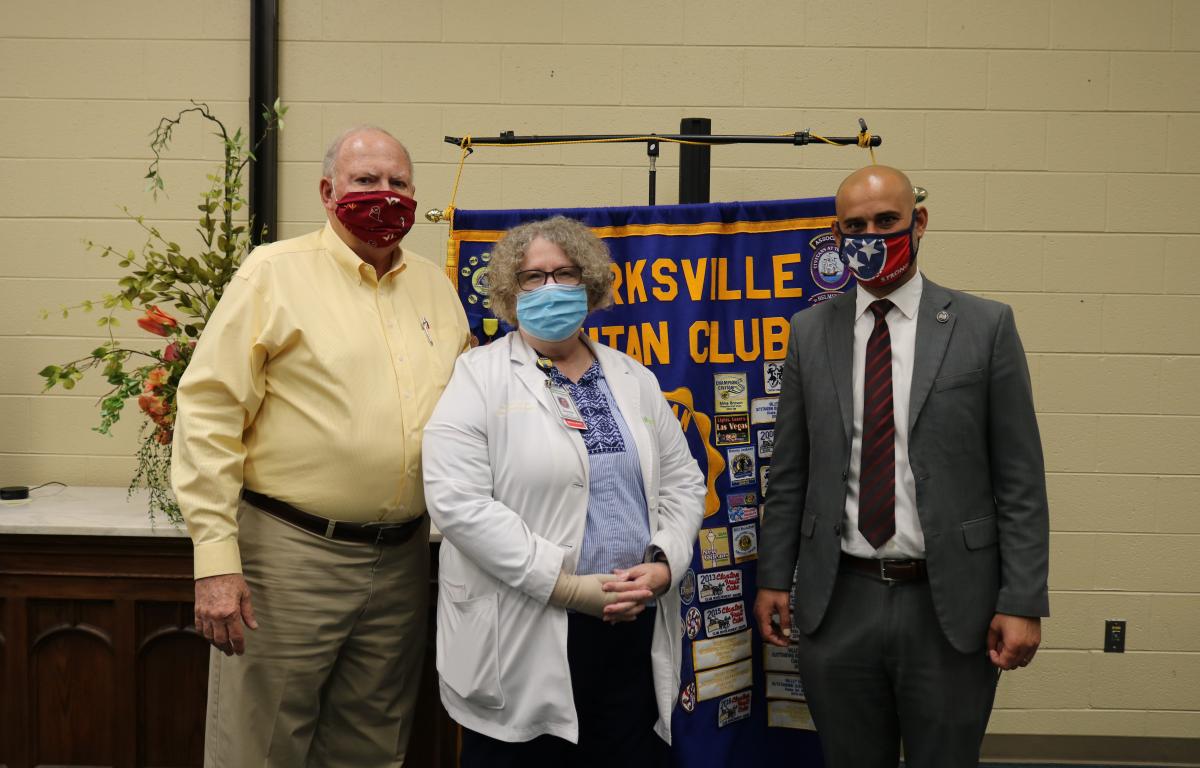CLARKSVILLE, Tenn. (CLARKSVILLENOW) – State Rep. Jason Hodges this week spoke at the Clarksville Civitan Club to give an update about the current state of several bills as well as to answer some of his constituent’s political concerns.
COVID-19 puts bills on hold
Due to the ongoing pandemic, several bills have been placed on hold, including a bill first drafted by Hodges that would have capped the price of insulin at $100 for both manufacturers and insurance companies.
Another bill on hold was meant to change the statewide grading scale from a 7-point scale to a 10-point scale, similar to that used by most colleges and universities. Hodges said the change would give students a better chance at academic scholarships.
Grading Scales Compared
Both bills have been placed on hold while Tennessee lawmakers focus on legislation aimed at providing relief and guidance amid the COVID-19 pandemic. This includes bills to expand telehealth throughout the state and protect small businesses from liability if a customer contracts COVID-19.
Keeping hospitals open
Hodges, speaking on Wednesday, responded to concerns from Civitan members regarding smaller rural hospitals having to close their doors, attributing closures to a higher number of uninsured patients in rural communities.
“We have some very, very poor counties, and when they don’t have health insurance and they go to the hospital … rural communities with higher rates of uninsured (patients) are not able to cover those debts.”
Hodges, a Democrat, said he is working with Republican colleagues to write legislation that may help uninsured Tennesseans access healthcare and keep hospitals open in rural communities.
“There’s a coalition of Republicans and Democrats that are going to meet in August to (form) a Medicaid expansion compromise. … Both sides are looking to come together and come to an agreement,” Hodges said.
Other comments
When asked about Gov. Bill Lee overriding the local governments’ reopening plans, Hodges said he was disappointed to see Clarksville-Montgomery County’s plan being dismantled.
“I don’t think (the governor’s) intention was to come after Clarksville. … It was just a statewide decision that happened to affect us at a really bad time,” said Hodges
Another member asked about the state’s views on online schooling and whether that was something the state was supporting. Hodges said there was a divide between representatives of urban communities such as Nashville, who have had high numbers of COVID-19 cases, and rural communities that have not been significantly affected by the pandemic. Those rural communities also tend to have lower student populations and more low-income families, making virtual schooling more difficult than in larger communities.
Hodges also spoke briefly on the recent protests in Nashville and around the country, assuring Civitan members that the situation in Tennessee has remained largely peaceful.
“There was one incident in Nashville where you have protests of 10,000 people that went home that night … then you have 80 people that did spray paint (buildings) and break windows, and I don’t think we judge the 10,000 people on the 80,” he said.



